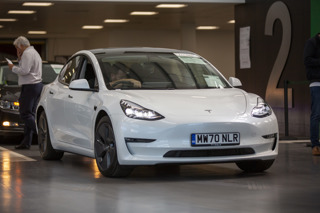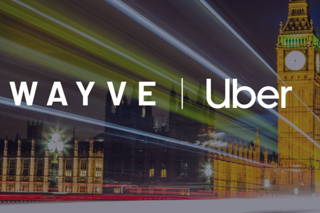A continued drive to promote low emissions cars for business and autonomous vehicles on UK roads both featured in George Osborne’s Budget today.
Nissan were among the first car manufacturer’s to officially welcome measures which, the budget document claimed, would see the UK established “as a global centre for excellence in connected and autonomous vehicles”.
As part of its proposed investment in an autonomous future on UK roads, the government plans to:
- Conduct trials of driverless cars on the strategic road network by 2017.
- Consult this summer on sweeping away regulatory barriers within this Parliament to enable autonomous vehicles on England’s major roads.
- Establish a £15 million ‘connected corridor’ from London to Dover to enable vehicles to communicate wirelessly with infrastructure and potentially other vehicles.
The government is allocating £151 million from the Local Majors Fund in the first round of allocation of funding for the schemes and launching the bidding process for the second tranche of funding for transformative local transport projects.
Paul Willcox, chairman of Nissan Europe, said: “Innovation is at the heart of Nissan and it’s at the heart of the UK. From the telephone and the television, to the Internet itself, British pioneers have been at the forefront of global invention since industrialisation began.
“Here, again, we are pushing the boundaries of what is possible, with our manufacturing teams in Sunderland preparing to make our first steps towards a fully autonomous drive vehicle in 2017.
“This is why we welcome the measures announced by the UK Chancellor today. These plans will support the development and growth of autonomous vehicle technology in the UK.”
Today’s Budget also included measures to promote zero and ultra-low emission vehicles.
It extended the 100% First Year Allowance (FYA) for businesses purchasing low emission cars for a further three years to April 2021 and reduced the main rate threshold for capital allowances for business cars to 110 g/km of CO2 and the FYA threshold to 50g/km of CO2 from April 2018, to reflect falling vehicle emissions.
Mr Osborne also resolved to continue to base Company Car Tax on CO2 emissions of cars, and consult on reforming the lower CO2 bands for ultra-low emission vehicles beyond 2020-21.
Mike Hawes, SMMT Chief Executive, said: “The 2016 Budget contained some positive measures and we were pleased to see the Chancellor recognise SMMT’s call for greater support for energy efficient technologies, through both the extension of Climate Change Agreements and a forthcoming consultation on the future Company Car Tax treatment of ultra low emission vehicles."
Malcolm Miller, managing director of automotive training and development agency RTS Group, described the changes to Capital Allowances as “a double-edged sword”, however, and also expressed concerns about comments regarding salary sacrifice schemes within the budget.
The document said that the government was considering limiting the range of benefits that attract income tax and NICs advantages as part of salary sacrifice schemes clearance following a 30% increase in request for such arrangement by employers since 2010.
Miller said: “This could have a negative impact on the motor trade.”


















Login to comment
Comments
No comments have been made yet.